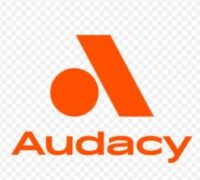That’s a question financial blog Simply Wall St. is asking about the audio media company that’s home to Cadence13, Pineapple Street and what had been the Radio.com app until its rebranding to Audacy.
With the company’s shares on the NYSE sputtering of late, it’s an interesting look at “who really controls” the company formerly known as Entercom.
On Wednesday, AUD finished the day at $3.32, off 5 cents from Tuesday.
That’s better than the $2.96 finish seen on August 19. However, share growth has been largely absent for Audacy since mid-March, when AUD was trading in the low-$6 range.
In contrast, companies such as iHeartMedia are trading at much better prices than seen six months ago.
With Audacy’s stock fragility as a backdrop, Simply Wall St. takes its stethoscope and goes about its check-up. It calls Audacy “a smaller company” with a market capitalization of $455 million. In some industries, this may suggest the company is flying under the radar of many institutional investors. However, for Audacy “institutions are noticeable on the share registry,” Simply Wall St. says.
That’s because they hold a good portion of AUD stock.
Institutional investors own over 50% of the company. But, it is not owned by hedge funds.
BlackRock Inc. is the second largest shareholder owning 6.5% of common stock. Contrarius Investment Management Limited holds about 5.9% of the company stock.
The Field family remains a key ownership component of Audacy. CEO David Field is the owner of 4.6% of the company’s shares. The largest shareholder is the company’s founder, Joseph Field, with 12% of shares outstanding.
Furthermore, Simply Wall St. finds that more than half the company’s shares are owned by the top 10 shareholders. This suggests that the interests of the larger shareholders are balanced out to an extent by the smaller ones.
“Insiders maintain a significant holding in Audacy,” Simply Wall St. says. “Insiders have a $80 million stake in this $455 million business. I would say this shows alignment with shareholders.”
What about the individual shareholder and their influence on the company? “The general public, with a 28% stake in the company, will not easily be ignored,” Simply Wall St. says. “This size of ownership, while considerable, may not be enough to change company policy if the decision is not in sync with other large shareholders.”





